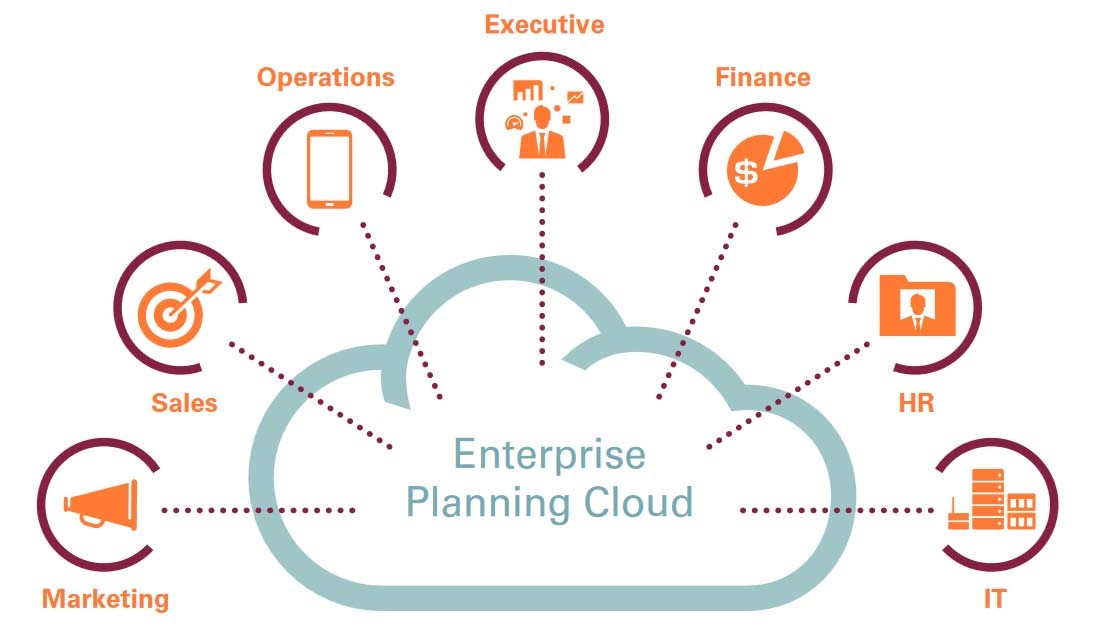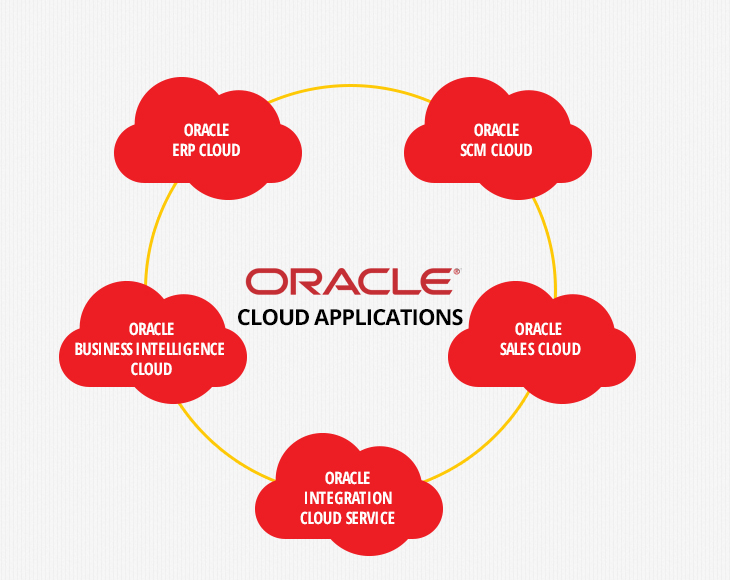Oracle Cloud: A Brief Introduction
Oracle Cloud, a prominent player in the cloud computing industry, offers a comprehensive suite of services that cater to various business needs. The platform has gained significant traction due to its robust infrastructure, innovative features, and seamless integration capabilities. Oracle Cloud provides a wide range of services, including Software as a Service (SaaS), Platform as a Service (PaaS), Infrastructure as a Service (IaaS), and Data as a Service (DaaS). These offerings empower businesses to streamline their operations, enhance productivity, and reduce costs.
The Emergence of Oracle Cloud
The History of Oracle Cloud began in 2011 when Oracle Corporation, a leading enterprise software company, announced its entry into the cloud market. The company’s motivation for entering the cloud space was to capitalize on the growing demand for scalable, flexible, and cost-effective IT solutions. Oracle Cloud aimed to provide businesses with a wide range of services, including software, platform, and infrastructure, to streamline their operations and enhance productivity.
Oracle’s initial cloud offering, Oracle Cloud Infrastructure (OCI), was released in 2016. This release marked a significant milestone in the History of Oracle Cloud, as it provided businesses with a robust and secure infrastructure for deploying and managing their applications and data. Over the years, Oracle Cloud has continued to evolve, introducing numerous upgrades and innovations that have solidified its position as a leading cloud provider.
The Evolution of Oracle Cloud: Major Upgrades and Innovations
Throughout the History of Oracle Cloud, the platform has undergone significant upgrades and innovations that have contributed to its current capabilities and market position. One of the key advancements was the introduction of Oracle Cloud Infrastructure (OCI) in 2016, which provided businesses with a secure and robust infrastructure for deploying and managing their applications and data.
Another major milestone in the History of Oracle Cloud was the launch of Oracle Autonomous Database in 2018. This innovative service leverages artificial intelligence and machine learning to automate database management tasks, such as patching, tuning, and backups, enabling businesses to reduce costs, minimize human errors, and improve security.
Moreover, Oracle Cloud has continued to expand its range of services, including the addition of Oracle Cloud@Customer, which allows businesses to run Oracle Cloud services on-premises, providing them with greater flexibility and control over their IT resources. These upgrades and innovations have solidified Oracle Cloud’s position as a leading cloud provider, offering businesses a comprehensive suite of services to streamline their operations and enhance productivity.
How Oracle Cloud Streamlines Business Operations
Oracle Cloud offers a wide range of services designed to help businesses streamline their operations and enhance productivity. These services include Software as a Service (SaaS), Platform as a Service (PaaS), Infrastructure as a Service (IaaS), and Data as a Service (DaaS). By leveraging these services, businesses can reduce costs, improve efficiency, and focus on their core competencies.
Software as a Service (SaaS)
Oracle Cloud’s SaaS offerings include enterprise resource planning (ERP), human capital management (HCM), customer relationship management (CRM), and supply chain management (SCM) solutions. These services enable businesses to automate and optimize various processes, such as financial management, procurement, project management, and talent management, leading to increased productivity and better decision-making.
Platform as a Service (PaaS)
Oracle Cloud’s PaaS services provide businesses with a platform for developing, deploying, and managing applications. These services include Oracle Mobile Cloud, Oracle Application Development, and Oracle Integration Cloud. By leveraging PaaS, businesses can accelerate application development, enhance collaboration, and reduce time-to-market for new products and services.
Infrastructure as a Service (IaaS)
Oracle Cloud’s IaaS offerings include compute, storage, and networking services that enable businesses to build and manage their IT infrastructure. By using IaaS, businesses can scale their resources on-demand, reduce capital expenditures, and improve their disaster recovery capabilities.
Data as a Service (DaaS)
Oracle Cloud’s DaaS services provide businesses with access to high-quality, curated data for various purposes, such as analytics, machine learning, and artificial intelligence. By leveraging DaaS, businesses can enrich their data, improve the accuracy of their insights, and make more informed decisions.
Oracle Cloud’s Impact on Various Industries
Oracle Cloud has significantly impacted various industries, including finance, healthcare, retail, and manufacturing, by providing innovative solutions that address unique business challenges. By leveraging Oracle Cloud’s services, these industries have experienced improved efficiency, enhanced customer experiences, and better decision-making.
Finance
Oracle Cloud has transformed the finance industry by offering robust financial management solutions that enable businesses to streamline their financial processes, reduce errors, and improve compliance. For instance, Oracle Cloud’s ERP solution has helped financial institutions automate their financial reporting, budgeting, and forecasting processes, leading to more accurate financial insights and better decision-making.
Healthcare
In the healthcare industry, Oracle Cloud has played a crucial role in enhancing patient care and improving operational efficiency. By leveraging Oracle Cloud’s HCM solution, healthcare providers can manage their workforce more effectively, ensuring that they have the right staff with the right skills in the right place at the right time. Additionally, Oracle Cloud’s analytics solutions have enabled healthcare providers to gain deeper insights into patient data, leading to improved patient outcomes.
Retail
Oracle Cloud has significantly impacted the retail industry by providing innovative solutions that enable retailers to enhance the customer experience, improve supply chain management, and optimize their pricing strategies. For instance, Oracle Cloud’s CRM solution has helped retailers gain a deeper understanding of their customers’ preferences and behaviors, enabling them to deliver personalized experiences that drive customer loyalty and revenue growth.
Manufacturing
In the manufacturing industry, Oracle Cloud has helped businesses optimize their production processes, reduce costs, and improve supply chain management. By leveraging Oracle Cloud’s SCM solution, manufacturers can gain real-time visibility into their supply chain operations, enabling them to make informed decisions that improve efficiency and reduce waste.
The Future of Oracle Cloud: Predictions and Trends
As the History of Oracle Cloud continues to unfold, several trends and advancements are expected to shape its future. These include the increasing adoption of artificial intelligence (AI) and machine learning (ML), the growth of cloud-native applications, and the continued focus on security and compliance.
Artificial Intelligence and Machine Learning
AI and ML are expected to play a more significant role in Oracle Cloud’s future, with the platform providing more advanced and intelligent solutions to businesses. By leveraging AI and ML, Oracle Cloud can help businesses automate complex processes, gain deeper insights into their data, and make more informed decisions.
Cloud-Native Applications
The growth of cloud-native applications is also expected to shape Oracle Cloud’s future, with the platform providing more tools and services to help businesses develop, deploy, and manage these applications. By leveraging cloud-native applications, businesses can improve their agility, scalability, and innovation, ultimately leading to a competitive advantage.
Security and Compliance
Security and compliance will continue to be a significant focus for Oracle Cloud, with the platform providing more advanced security features and tools to help businesses protect their data and comply with regulations. By leveraging Oracle Cloud’s security features, businesses can reduce the risk of data breaches, improve their compliance posture, and build trust with their customers.
Expert Opinions and Predictions
According to industry experts, Oracle Cloud is well-positioned to continue its growth and success in the cloud computing industry. For instance, Forrester Research predicts that Oracle Cloud will be a significant player in the cloud market, with its revenue growing at a compound annual growth rate (CAGR) of 22% between 2020 and 2025. Similarly, Gartner expects Oracle Cloud to be one of the fastest-growing cloud providers, with its revenue growing at a CAGR of 29.4% between 2020 and 2024.
How to Successfully Implement Oracle Cloud in Your Business
Implementing Oracle Cloud in your business can provide numerous benefits, including improved efficiency, enhanced collaboration, and better decision-making. However, successful implementation requires careful planning, execution, and management. Here are some practical tips and best practices to help you get started:
Assess Your Business Needs
Before implementing Oracle Cloud, it’s essential to assess your business needs and identify the specific services and features that will provide the most value to your organization. This may involve conducting a thorough needs analysis, engaging with key stakeholders, and defining your business objectives and success criteria.
Choose the Right Deployment Model
Oracle Cloud offers several deployment models, including public cloud, private cloud, and hybrid cloud. Choosing the right deployment model depends on several factors, such as your security and compliance requirements, application and data dependencies, and budget constraints.
Plan for Data Migration
Data migration is a critical aspect of Oracle Cloud implementation. It’s essential to plan for data migration carefully, including identifying the data to be migrated, estimating the migration time and resources, and testing the migration process thoroughly.
Configure and Customize Oracle Cloud
Once you’ve migrated your data, it’s time to configure and customize Oracle Cloud to meet your specific business needs. This may involve setting up user accounts, configuring security and access controls, and integrating Oracle Cloud with your existing systems and applications.
Train Your Users
User adoption is critical to the success of Oracle Cloud implementation. It’s essential to provide comprehensive training to your users, including hands-on training, documentation, and support, to ensure they can use Oracle Cloud effectively and efficiently.
Monitor and Optimize Oracle Cloud
After implementing Oracle Cloud, it’s essential to monitor and optimize its performance continuously. This may involve tracking usage patterns, identifying performance bottlenecks, and fine-tuning the system configuration to ensure optimal performance and cost efficiency.
Comparing Oracle Cloud to Other Leading Cloud Providers
When choosing a cloud provider, businesses must consider several factors, including cost, features, performance, and security. In this context, it’s essential to compare Oracle Cloud to other leading cloud providers, such as Amazon Web Services (AWS), Microsoft Azure, and Google Cloud Platform, to make an informed decision.
Amazon Web Services (AWS)
Amazon Web Services (AWS) is a pioneer in the cloud computing industry and offers a wide range of services and features. AWS has a strong presence in the IaaS and PaaS markets and provides advanced analytics, machine learning, and artificial intelligence capabilities. However, AWS can be complex and challenging to navigate for beginners, and its pricing model can be confusing.
Microsoft Azure
Microsoft Azure is a popular choice for businesses that use Microsoft products and services, such as Office 365 and Dynamics 365. Azure offers a wide range of services and features, including IaaS, PaaS, and SaaS, and provides advanced analytics, machine learning, and AI capabilities. Azure is known for its user-friendly interface and flexible pricing model, but it may not be as cost-effective as other cloud providers for some workloads.
Google Cloud Platform (GCP)
Google Cloud Platform (GCP) is a fast-growing cloud provider that offers a wide range of services and features, including IaaS, PaaS, and SaaS. GCP is known for its powerful data analytics and machine learning capabilities, as well as its user-friendly interface and flexible pricing model. However, GCP may not have as many features and integrations as other cloud providers, and its market share is still relatively small compared to AWS and Azure.
Oracle Cloud: Strengths and Weaknesses
Oracle Cloud offers a wide range of services and features, including IaaS, PaaS, and SaaS, and provides advanced analytics, machine learning, and AI capabilities. Oracle Cloud is known for its strong performance, security, and compliance features, as well as its seamless integration with Oracle on-premises solutions. However, Oracle Cloud may not be as well-known or widely adopted as other cloud providers, and its market share is still relatively small compared to AWS and Azure.
Unbiased Analysis
Choosing a cloud provider is a critical decision that requires careful consideration and evaluation. While each cloud provider has its strengths and weaknesses, it’s essential to choose the one that best fits your business needs and objectives. By providing an unbiased analysis of Oracle Cloud and other leading cloud providers, this article aims to help readers make informed decisions and maximize the benefits of cloud computing.

.jpg?width=1034&name=Oracle-PLM-Cloud-Benefits%20(1).jpg)



